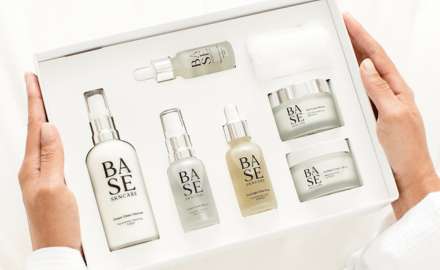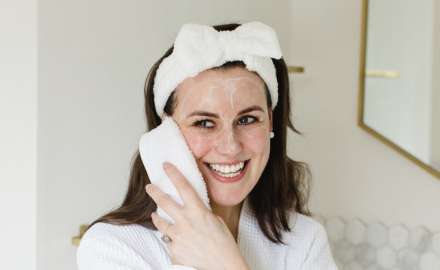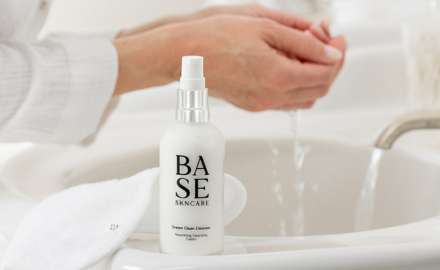
Natural vs. Synthetic Skincare Ingredients
This week we’re talking about a subject that has divided the beauty industry for decades…Natural vs Synthetic Ingredients.
Some believe that nature takes the best care of our skin and that anything formed in a lab is toxic. Whilst others are of the opinion that natural ingredients are totally ineffective and man-made formulas are the only real way to deliver results. So, which group is right?
The Power of Natural Ingredients
Natural ingredients, as the name implies, are derived from nature and have been trusted for thousands of years in skincare practices long before the modern beauty industry emerged. Ancient civilisations like the Greeks, Romans, and even the legendary Cleopatra turned to ingredients like olive oil, honey, and milk for their cleansing and moisturising properties.
There is absolutely no denying that these natural ingredients still deliver incredible nourishing and soothing benefits today. The only trouble is, it’s not a one size fits all philosophy. For instance, if we look at essential oils which can be extracted from all kinds of plants, when applied to the skin they can be extremely volatile.
In fact, I tried one in a potential BASE formula once and my skin immediately broke out into a sore, red rash.
The Big Misconception with Natural Ingredient
Unfortunately, the term 'natural ingredients' can be misleading. Unlike the food industry, there are no regulations controlling the use of words such as ‘natural’, ‘organic’ or ‘chemical free’ which means they can be interpreted however a brand sees fit.
Embracing Synthetic Ingredients
Now, let’s take a look at synthetic ingredients. These are chemical copies of natural ingredients that are formulated and tested in labs. The endless developments have brought us game-changing ingredients such as hyaluronic acid for hydration, vitamin c for pigmentation prevention and of course retinol, to make our skin physically act younger.
One of the main benefits of synthetic ingredients is that they are able to maintain their quality with each and every formulation. Unlike a rose water that may vary in potency from one batch of flowers to the other, man-made ingredients are all created equal. This means they can be scientifically-proven to deliver results time and time again and also ensure maximum safety.
The Downside to Synthetic Ingredients
Unfortunately, one of the drawbacks is that some of the components that have been developed, are simply not good for our skin. Parabens, sulphates and mineral oil for example are renowned for causing irritation and are usually used to bulk out cheaper products, or make them last longer. This means companies can keep bottles on shelves for years and years to maximise their profit margins.
Finding the Right Skincare for your Skin
With both natural and synthetic ingredients having their pros and cons, the decision ultimately boils down to personal preference and your skincare goals.
My philosophy has always been to harness the best of both worlds. This means incorporating pure, natural oils in our products to soothe, condition, and nourish the skin, while also blending them with scientifically-proven active ingredients to address specific skin concerns and deliver a healthy, youthful complexion.
The reason we use skincare is because we want results, which is why I’ll never compromise on the quality of our formulas. This means they’re free of parabens, sulphates and fragrance and I’m super proud that all our natural ingredients are approved by the Soil Association as well. It’s one of only two companies that now verify the quality and standard of natural ingredients and ensures they’re all sustainably sourced.
It’s this unique approach that I believe makes BASE as special as it is and allows us to transform your skin so quickly. As with all things in life, balance is usually key and in this instance, I’d say we’ve got it absolutely, spot on 🥰

Amy x
Amy is a qualified skin expert and founder of BASE. When she’s not writing about skincare, you’ll find her applying it, developing it or daydreaming about it instead!















